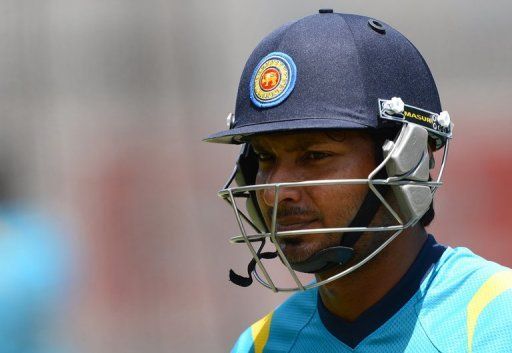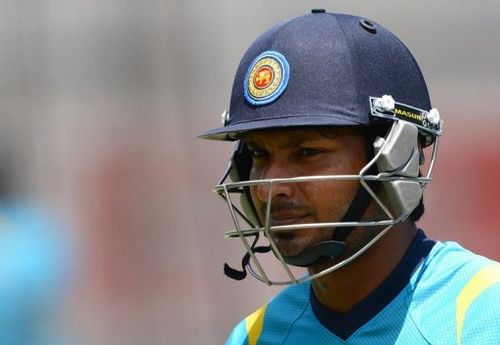
Sri Lanka cricket in crisis over pay dispute
COLOMBO (AFP) –

Former Sri Lanka skipper Kumar Sangakkara is pictured during a match in Melbourne on December 25, 2012. Sri Lanka cricket authorities demonstrated their uncompromising stand on players’ employment agreements by dropping Sangakkara from Sunday’s three-day practice match against Bangladesh.
Sri Lanka’s team selection was thrown into chaos Sunday after all its international cricketers refused new contracts and demanded higher pay and perks before the upcoming Bangladesh series.
Sri Lanka Cricket chief executive officer Ajith Jayasekera said a Saturday deadline passed with Sri Lanka’s 23 international players failing to enter into employment agreements with the sport’s governing body in the island.
“The deadline passed without the players signing the contracts,” Jayasekera told AFP. “They wanted us to negotiate with a representative of theirs. We said no. We had already had one-on-one meetings. There is nothing to negotiate now.”
The authorities demonstrated their uncompromising stand by dropping former skipper Kumar Sangakkara from Sunday’s three-day practice match against Bangladesh at the southern town of Matara.
The First Test is due to start on March 8 at Galle and the team selection was due to be made over the weekend. Players were not immediately available for comment.
The players had insisted that they need a 25 percent share of all payments made by the International Cricket Council as guarantee money for tournaments, as well as a business-class ticket for a spouse to travel on tour.
Sports Minister Mahindananda Aluthgamage told reporters he had instructed Sri Lanka Cricket to drop any player who refused to sign their new contracts.
“I have told them that they should pick a new team for the Bangladesh tour if the seniors refuse,” Aluthgamage said.
He said senior players received four million rupees ($32,000) a month, or about 400 times the salary a graduate earns when entering government employment.